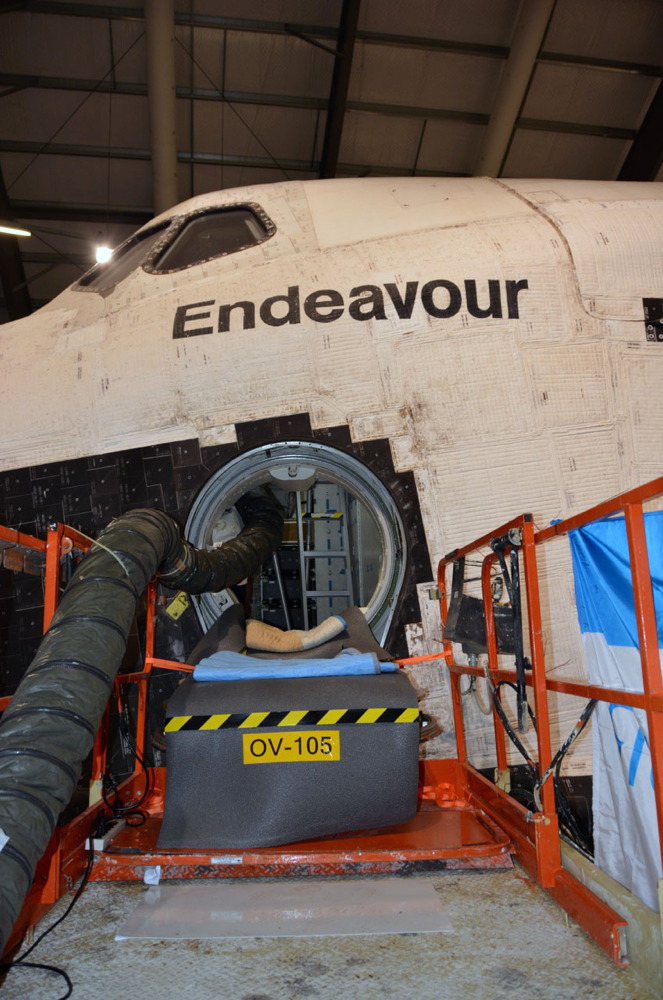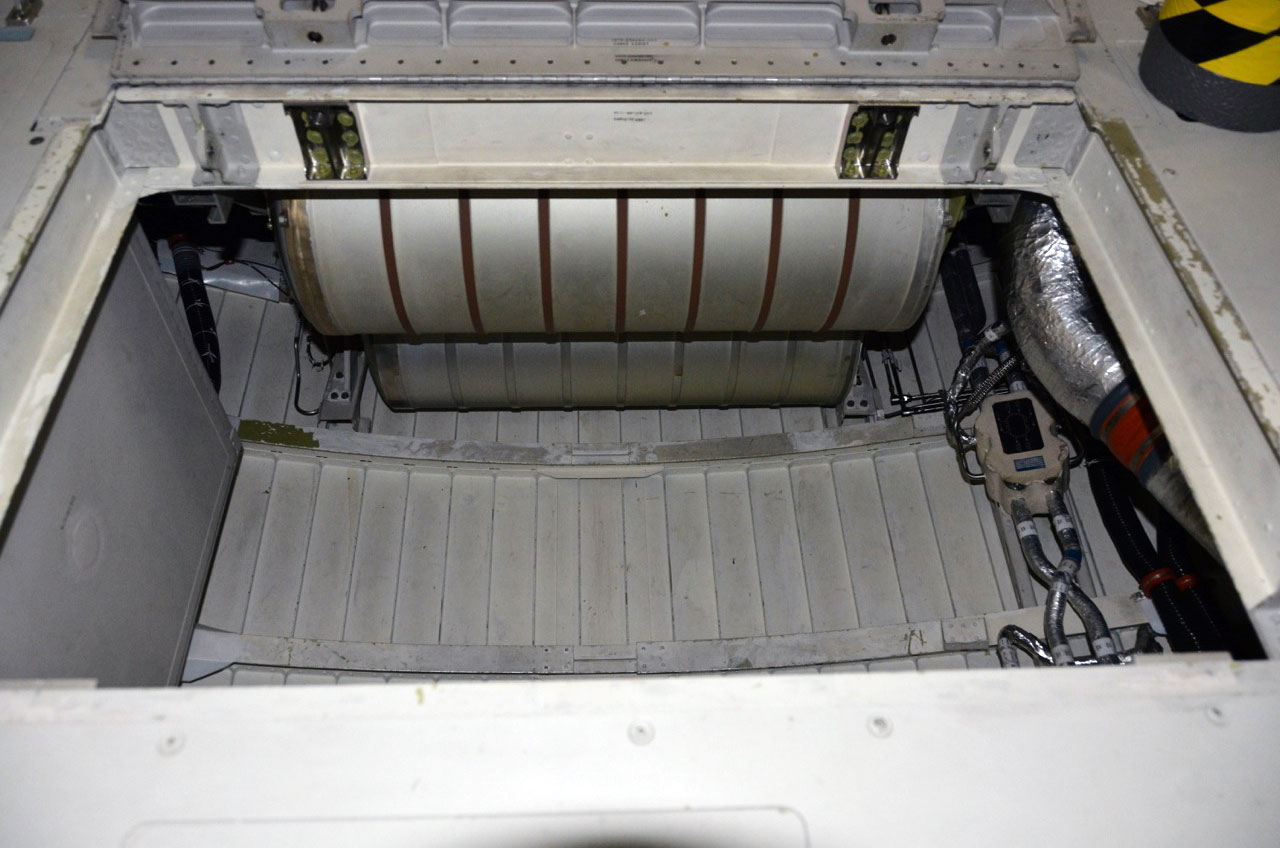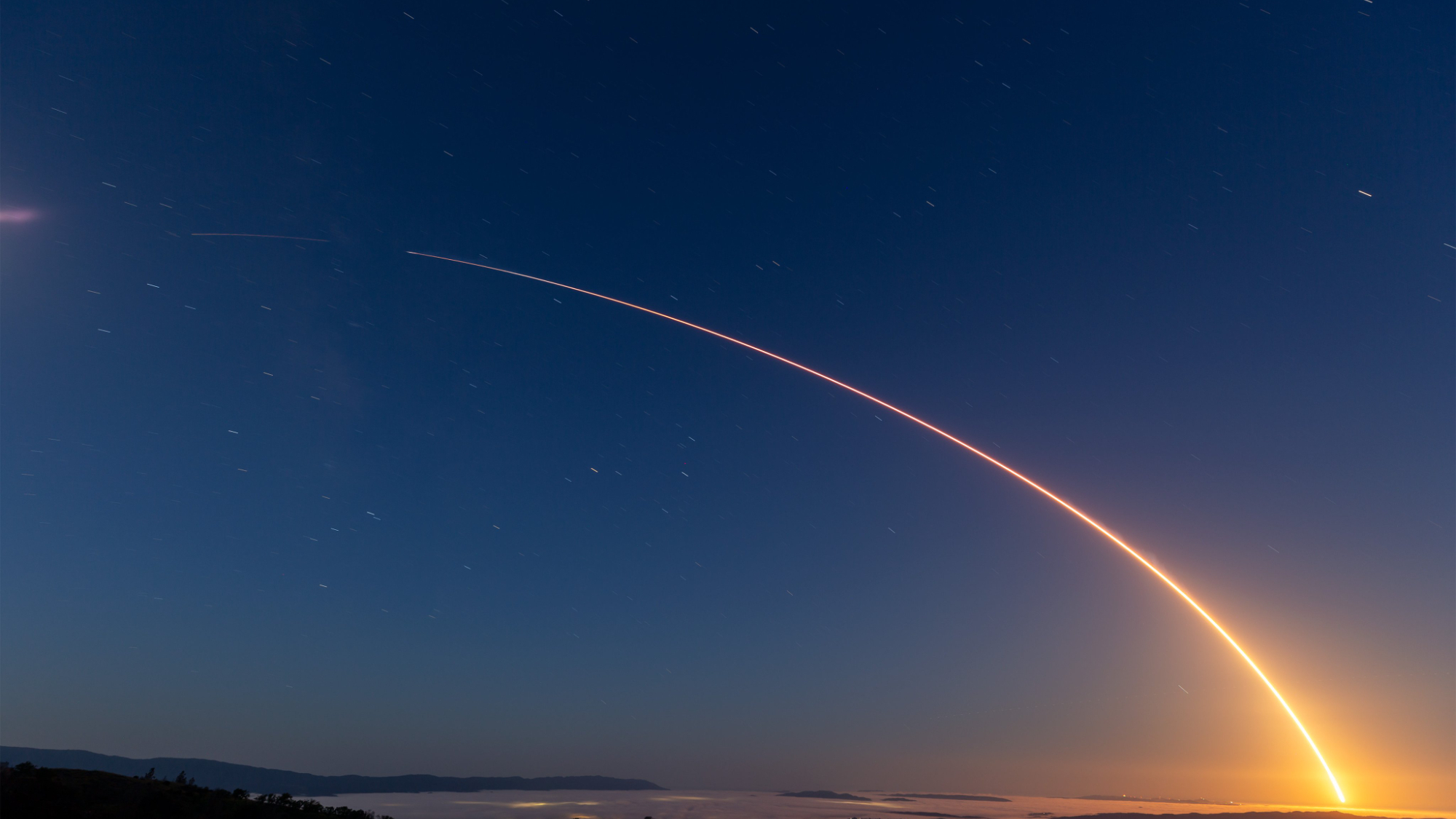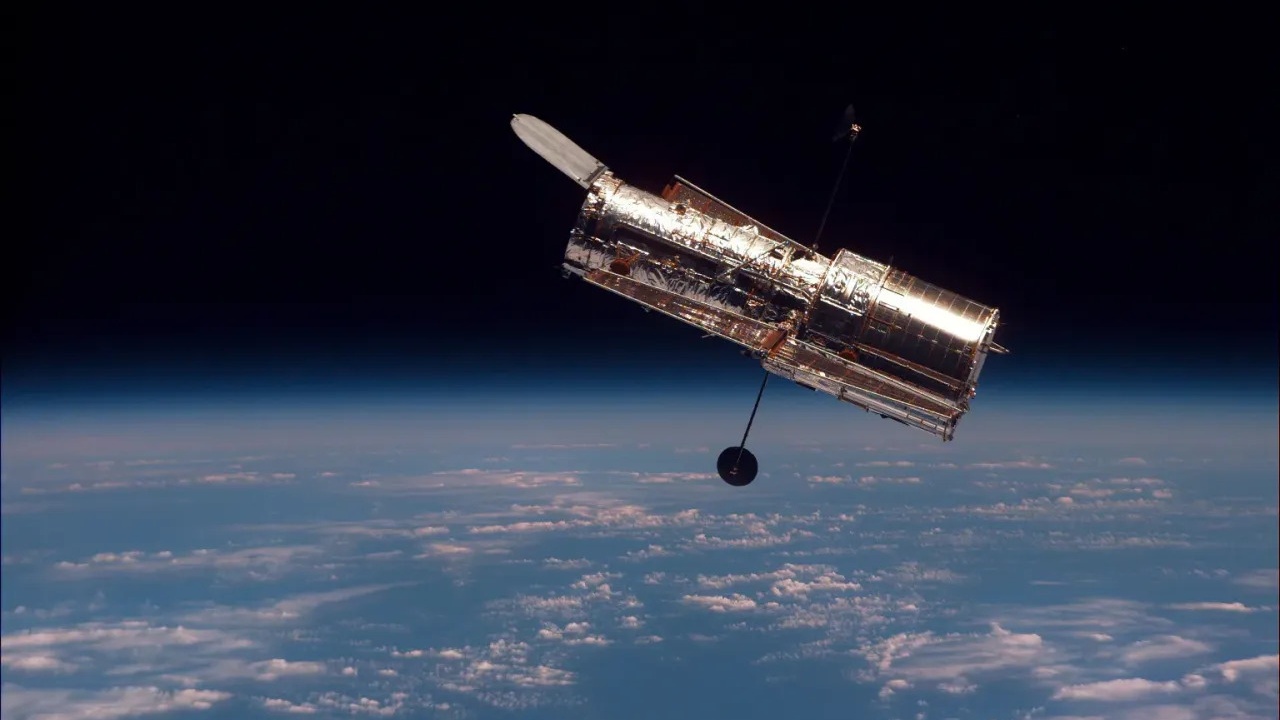Photos Show How NASA Removed Tanks from Retired Space Shuttles for Station

New behind-the-scenes photos reveal how the water storage tanks deep inside NASA's retired space shuttles Atlantis and Endeavour were recently removed by the space agency for future use on the International Space Station.
The photographs of the shuttle tank removals, which were shared with collectSPACEby NASA workers at the Kennedy Space Center in Florida and by the manager for Endeavour's display at the California Science Center in Los Angeles, show how the 3-foot-long (0.9 meters) tanks were accessed under the floor of the orbiters' crew cabins and were then extracted through different hatches on each vehicle.
As collectSPACE.com was the first to report, the retired shuttles' potable water tanks were called back into service by NASA to support a new storage system for the space station. Currently, the astronauts' recycled drinking supply is stored aloft in soft, duffle-like bags that are time-consuming to fill. [Space Shuttle Endeavour on Display (Photos)]
The shuttles' tanks will allow for a larger integrated water reserve, freeing the crew to devote more time to science research aboard the orbiting laboratory.
"NASA assessed various options for the water storage system beginning in mid-2013," said Chad Rowe with NASA's space station vehicle office at the Johnson Space Center in Houston. "After evaluating the system concepts earlier this year, NASA decided to move forward and retrieve the tanks as a means to minimize project costs."
Unbeknownst to the public at the time, workers in May removed the water tanks from the space shuttle Atlantis, which is on exhibit at the Kennedy Space Center Visitor Complex.
Endeavour's four potable water tanks and one waste water tank were extracted last week at the California Science Center, where the orbiter has been on display inside the Samuel Oschin Endeavour Display Pavilion since 2012.
Get the Space.com Newsletter
Breaking space news, the latest updates on rocket launches, skywatching events and more!
"The Endeavour waste water tank was shipped to the Kennedy Space Center for removal of some sensor and wiring components that will serve as spares for the storage system," Rowe explained. "The waste water tank will be returned to the California Science Center for reinstallation into Endeavour."
The tanks from Atlantis and Endeavour will be checked for cleanliness and leaks before being integrated to become the station's water storage system. They are not anticipated to need modifications.

NASA expects to launch the tanks within three to five years for likely installation in the U.S. "Destiny" laboratory, said Rowe.
"The current goal is to maximize the ability to fly key storage system components on multiple vehicles, including U.S commercial cargo vehicles," he said.
Other than Endeavour's waste water tank, any of the water tanks that do not fly to station will be retained by NASA for potential use as spares or for the potential future expansion of the water storage system.
See the water tanks being removed from NASA's space shuttles Atlantis and Endeavour only at collectSPACE.com.
Follow collectSPACE.com on Facebook and on Twitter at @collectSPACE. Copyright 2015 collectSPACE.com. All rights reserved.
Join our Space Forums to keep talking space on the latest missions, night sky and more! And if you have a news tip, correction or comment, let us know at: community@space.com.

Robert Pearlman is a space historian, journalist and the founder and editor of collectSPACE.com, a daily news publication and community devoted to space history with a particular focus on how and where space exploration intersects with pop culture. Pearlman is also a contributing writer for Space.com and co-author of "Space Stations: The Art, Science, and Reality of Working in Space” published by Smithsonian Books in 2018.In 2009, he was inducted into the U.S. Space Camp Hall of Fame in Huntsville, Alabama. In 2021, he was honored by the American Astronautical Society with the Ordway Award for Sustained Excellence in Spaceflight History. In 2023, the National Space Club Florida Committee recognized Pearlman with the Kolcum News and Communications Award for excellence in telling the space story along the Space Coast and throughout the world.










